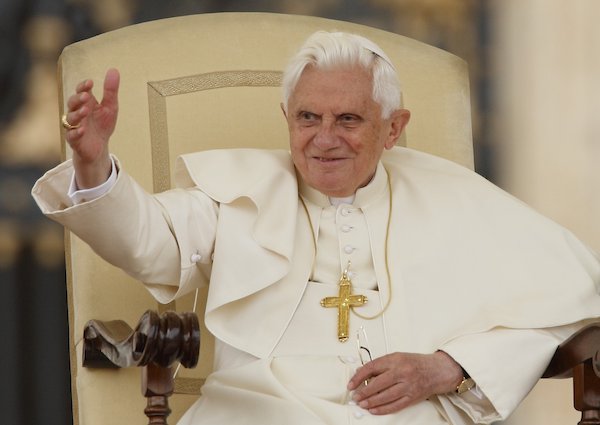
PROSPECT HEIGHTS — Pope Benedict XVI’s considerable influence will be seen and felt for decades after his passing, particularly in the leadership of the Catholic Church in the United States.
Archbishop Timothy Broglio of the Archdiocese for the Military Services, USA, and Archbishop William Lori of Baltimore, the respective U.S. Conference of Catholic Bishops president and vice president, were both installed to their current dioceses by Pope Benedict. The same is true for Archbishop José Gomez of Los Angeles and Archbishop Allen Vigneron, whose terms as president and vice president ended in November.
Other U.S. clergymen who were installed to their current diocese by Pope Benedict, many of whom hold or have held prominent leadership positions within the USCCB include:
- Cardinal Timothy Dolan of New York
- Archbishop Salvatore Cordileone of San Francisco
- Archbishop Alexander Sample of Portland
- Archbishop Samuel Aquila of Denver
- Archbishop Thomas Wenski of Miami
- Archbishop Paul Coakley of Oklahoma City
- Archbishop Gustavo García-Siller of San Antonio
- Archbishop Jerome Listecki of Milwaukee
- Bishop Kevin Rhoades of Fort Wayne-South Bend
- Bishop David Malloy of Rockford
- Bishop Daniel Flores of Brownsville
Pope Benedict elevated Archbishop Dolan to Cardinal and also elevated Cardinal Seán O’Malley of Boston and Cardinal Daniel DiNardo of Galveston-Houston to the College of Cardinals.
Tony Spence, who was the director and editor-in-chief of Catholic News Service from 2004-2016, said that Pope Benedict’s bishop appointments will be a “long-lasting legacy.”
When it comes to Pope Benedict’s legacy, Bishop Gerald Kicanas, the retired bishop of the Diocese of Tucson, Arizona, and former vice president of the USCCB, highlighted that his writings are a great contribution to the Church both in the U.S. and abroad.
Another piece of it, Kicanas said, was the fact that Pope Benedict was likely more comfortable reading and writing but “rose to the occasion” as pope to be a true pastor to the Catholics of the world, which includes the U.S.
“In his gentle, loving way, his eyes were very penetrating,” Bishop Kicanas said. “When he looked at you, whether it was a bishop or a child with a disability or a person that he was encountering, his eyes were always penetrating.”
